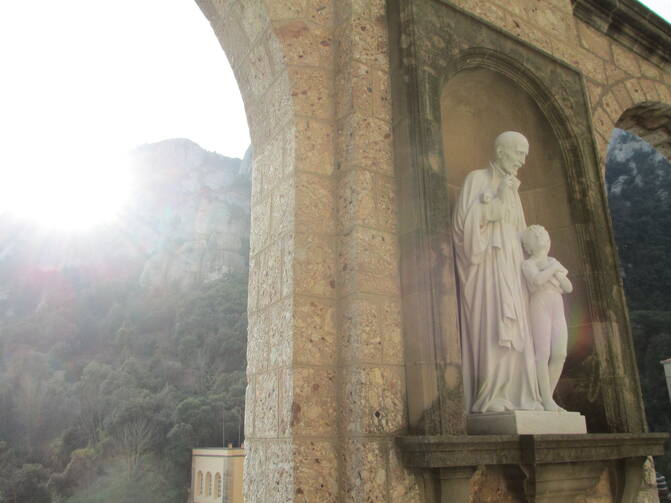At Thanksgiving we hear often about the Pilgrims. We recall their arrival in the New World and their interaction with Native Americans. Thinking of that group of pilgrims has led me this week to return to the idea of the pilgrim in the context of our Catholic faith, and to consider the motif of the pilgrim next to other ways of conceiving one's way of proceeding in the world.
Pilgrimage is invariably associated with movement, both a physical, exterior movement, as well as an interior one; but not just any movement; rather, a movement toward deeper insight, deeper holiness, greater faith. To be a pilgrim is not to put on a role, not to adopt, at one time or another, a particular stance. Rather, as a Christian, being a pilgrim becomes part of one's being, one's identity. When I throw my lot with Christ, I throw myself to journey. It is part of the after-effects of conversion: suddenly, the world becomes temporary. I belong to God and God alone. When I lose my sense of pilgrimage, though, I lose something of that trusting, traveling spirit. I risk being content, artificially satisfied.
Howard Gray, S.J., commenting on St. Ignatius's self-designation as a pilgrim, writes that Ignatius "meant the title literally because after Loyola he traveled from Montserrat to Manresa, to Barcelona, to Rome, to Venice, to Jerusalem, to a series of Spanish university towns, and then to Paris. From city to city, from university to university, Ignatius learned how to discern the movements within his own soul." But of course, pilgrimage is more about one's interior disposition than exterior: one can travel all around the world, from site to site, and never once view life with the eyes of a pilgrim. At the same time, one can be a pilgrim in prison.
Gray also notes:
The spirituality Ignatius presented does lay claim to magnificent ambitions and ideals. But the initial process that led to his greatness of vision and spiritual ambition was that of the pilgrimage of God. It was a sustaining metaphor that implied traveling light, with the essential baggage being those values preached by Christ. The pilgrimage metaphor also meant a patient willingness to find God through the journeying. It also meant a willingness to risk a process of trial and error, of successes and failures, of some triumphs but also many humiliating defeats. The pilgrimage, finally, meant taking the journey to God by working for the kingdom in the midst of the world, net secluded from it.
A prayer for this week: Lord, help me become a pilgrim. Let me never stop seeking; encourage me always to go out into the deep, to sell my possessions, to pick up my cross, to follow you.








